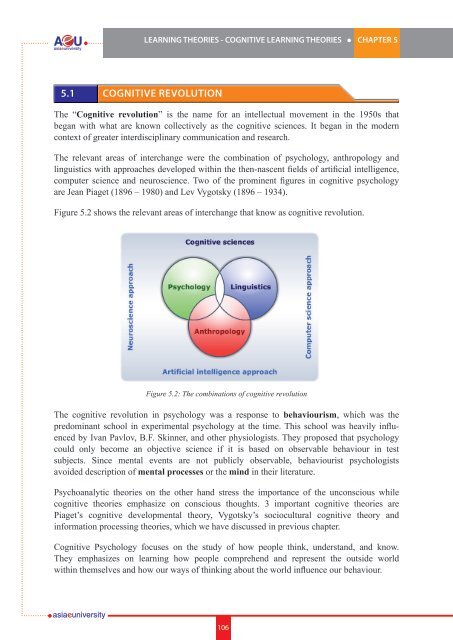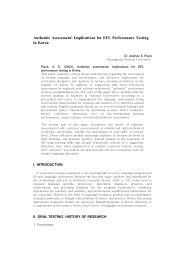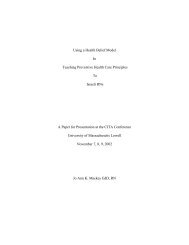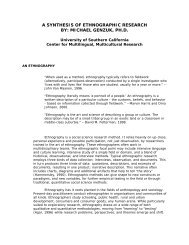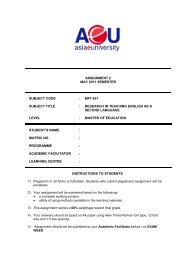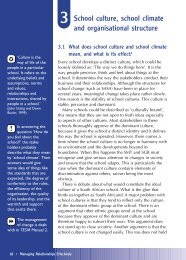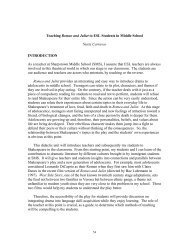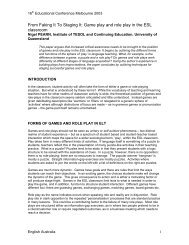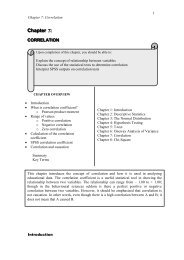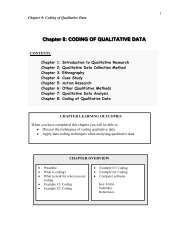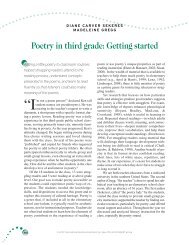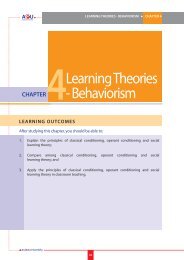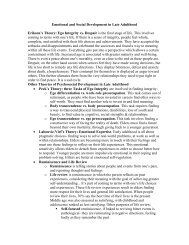Learning Theories - Cognitive Learning Theories CHAPTER
Learning Theories - Cognitive Learning Theories CHAPTER
Learning Theories - Cognitive Learning Theories CHAPTER
You also want an ePaper? Increase the reach of your titles
YUMPU automatically turns print PDFs into web optimized ePapers that Google loves.
LEARNING THEORIES - COGNITIVE LEARNING THEORIES • <strong>CHAPTER</strong> 55.1 <strong>Cognitive</strong> RevolutionThe “<strong>Cognitive</strong> revolution” is the name for an intellectual movement in the 1950s thatbegan with what are known collectively as the cognitive sciences. It began in the moderncontext of greater interdisciplinary communication and research.The relevant areas of interchange were the combination of psychology, anthropology andlinguistics with approaches developed within the then-nascent fields of artificial intelligence,computer science and neuroscience. Two of the prominent figures in cognitive psychologyare Jean Piaget (1896 – 1980) and Lev Vygotsky (1896 – 1934).Figure 5.2 shows the relevant areas of interchange that know as cognitive revolution.Figure 5.2: The combinations of cognitive revolutionThe cognitive revolution in psychology was a response to behaviourism, which was thepredominant school in experimental psychology at the time. This school was heavily influencedby Ivan Pavlov, B.F. Skinner, and other physiologists. They proposed that psychologycould only become an objective science if it is based on observable behaviour in testsubjects. Since mental events are not publicly observable, behaviourist psychologistsavoided description of mental processes or the mind in their literature.Psychoanalytic theories on the other hand stress the importance of the unconscious whilecognitive theories emphasize on conscious thoughts. 3 important cognitive theories arePiaget’s cognitive developmental theory, Vygotsky’s sociocultural cognitive theory andinformation processing theories, which we have discussed in previous chapter.<strong>Cognitive</strong> Psychology focuses on the study of how people think, understand, and know.They emphasizes on learning how people comprehend and represent the outside worldwithin themselves and how our ways of thinking about the world influence our behaviour.106


